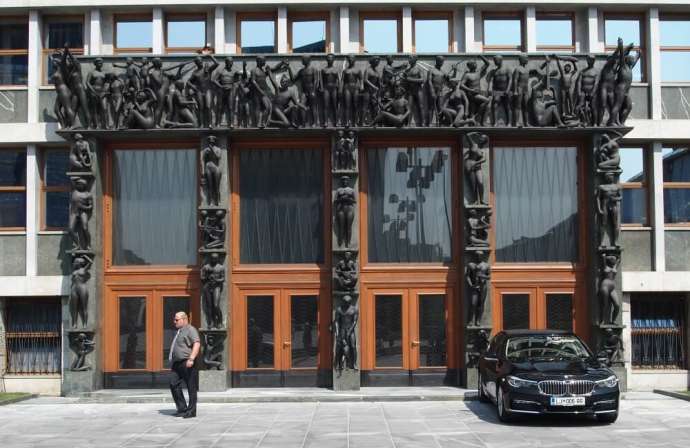STA, 14 July 2022 - The MPs passed in a 52:27 vote on Thursday an omnibus act filed to parliament with voter signatures to change eleven laws passed under the previous government. The laws have been deemed by the 8 March Institute NGO as harmful to equality, human rights and the rule of law. The opposition SDS plans to challenge the act at the Constitutional Court.
The act on reducing inequalities and harmful political interference and ensuring the respect for the rule of law - the name under which it was filed to parliament - restores the legislation to the state before it was amended by the Janez Janša government either in fast-track procedures or without consulting experts.
The act has enjoyed the support of the parties that formed the new government after the 24 April election since it was presented this spring.
It prevents political staffing in the police force, foremost the National Bureau of Investigation, and interference in independence of state prosecutors.
The legal basis for the entry of platforms such as Uber onto the Slovenian market is being eliminated, and environmental NGOs will again more easily take part in planning procedures.
The culture minister will lose some powers in awarding public funds in public tenders while the Culture Ministry's expert commissions will gain some.
The act changes the corporate income tax act in that it lowers the basis for partly recognised entertainment costs and costs of oversight bodies.
Finance Ministry State Secretary Tilen Božič said during today's debate that this particular change will increase annual budgetary revenue by EUR 2.6 million.
The construction law, which excluded architects and landscape architects from being in charge of construction projects, will also be restored to the previous state. This has upset civil engineers, who have announced they will fight the latest changes with all legal means.
The act moreover changes the composition of councils at education institutions where the number of staff representatives was reduced, and foreign students will no longer have to have EUR 5,000 in their bank account as one of the conditions to study in Slovenia.
The act was endorsed by the coalition Freedom Movement, Social Democrats (SD) and Left, who said they thus met their pre-election pledge of cooperation with NGOs.
Voting against were the opposition Democrats (SDS) and New Slovenia (NSi), which argued it would be better to amend each of the 11 laws separately to enhance transparency, a point also raised by the National Assembly's legal service.
The SDS and NSi also find it problematic that the act cannot be put to a referendum as it contains changes to the corporate income tax act.
SDS MP Dejan Kaloh said claiming the changes passed under the previous government had "harmful consequences" was premature due to the short period since the legislation was passed.
Coalition SD MP Meira Hot meanwhile stressed the previous government had "planted" into coronavirus emergency legislation "a number of changes that had little to do with the pandemic but have permanently changed some social and systemic relations".
Today's debate largely focussed on changes to the weapons act which narrow down the eligibility to buy semi-automatic firearms.
The SDS argued this would amount to abolishing some sports, but Interior Ministry State Secretary Branko Lobnikar said the act does not ban any sport weapons. He explained the EU has made purchases of these weapons more difficult in the wake of terrorist attacks in Europe.
The 8 March Institute started thinking about drafting the act in November and collected some 15,000 signatures in spring to file it to parliament, while 5,000 are needed.
"We were wondering how to put an end to the feelings of helplessness when the previous government was trampling on democracy," its head Nika Kovač told the press before today's vote, happy that by supporting the act the coalition kept its pre-election promise of working with the civil society.
"Natural disasters call for emergency measures but the last two years were a natural disaster for the country's democracy," said Goran Forbici, head of one of the NGOs which helped the 8 March Institute in the omnibus bill effort.
Kovač said the whole effort was not easy as they had been constantly attacked and criticised, and announced legal action against those who insulted them and told lies at the Home Affairs Committee session on Tuesday.
Forbici, head of the Centre of NGOs of Slovenia, responded to the view that it would be better to amend each law separately, saying it would take four years to complete the process.







